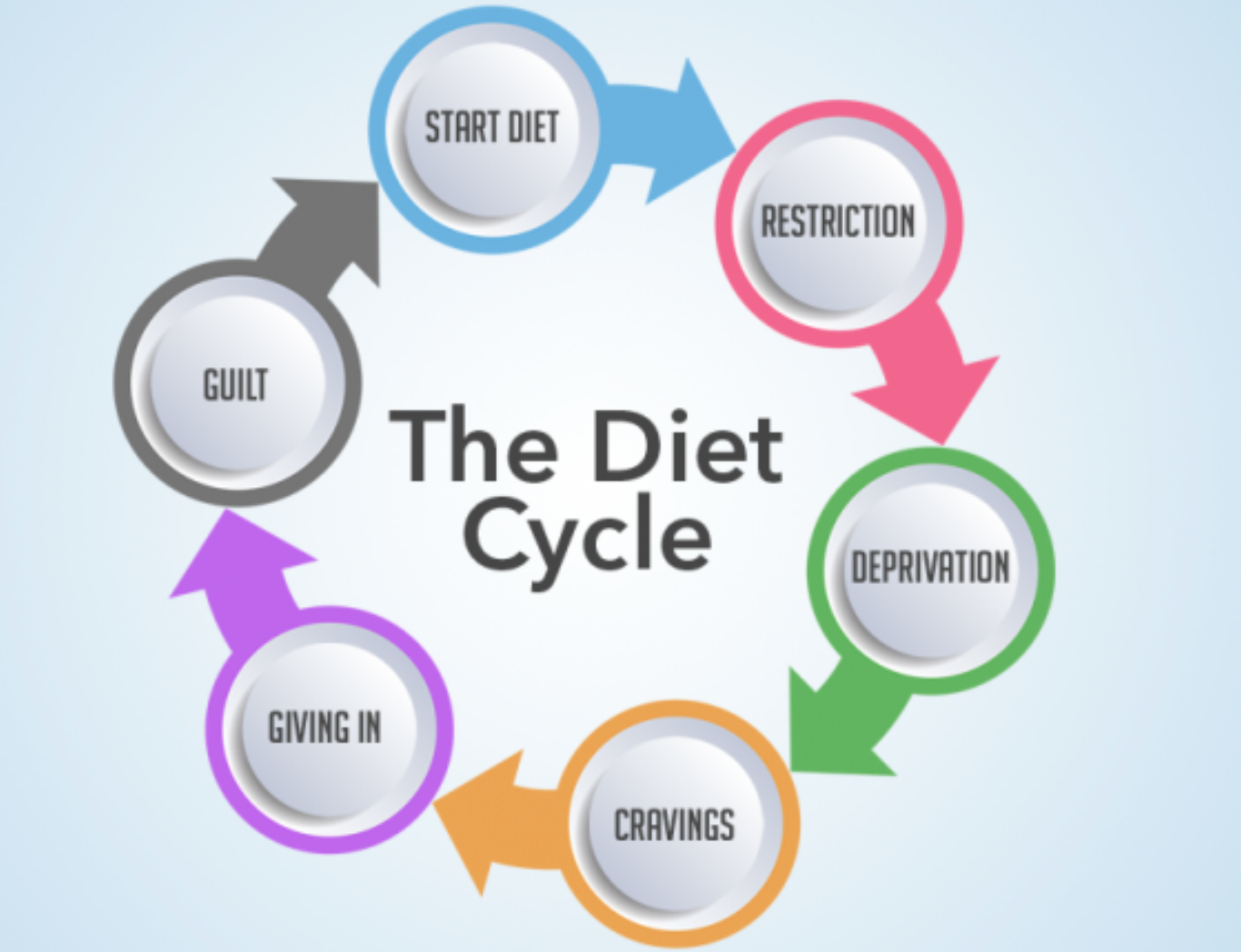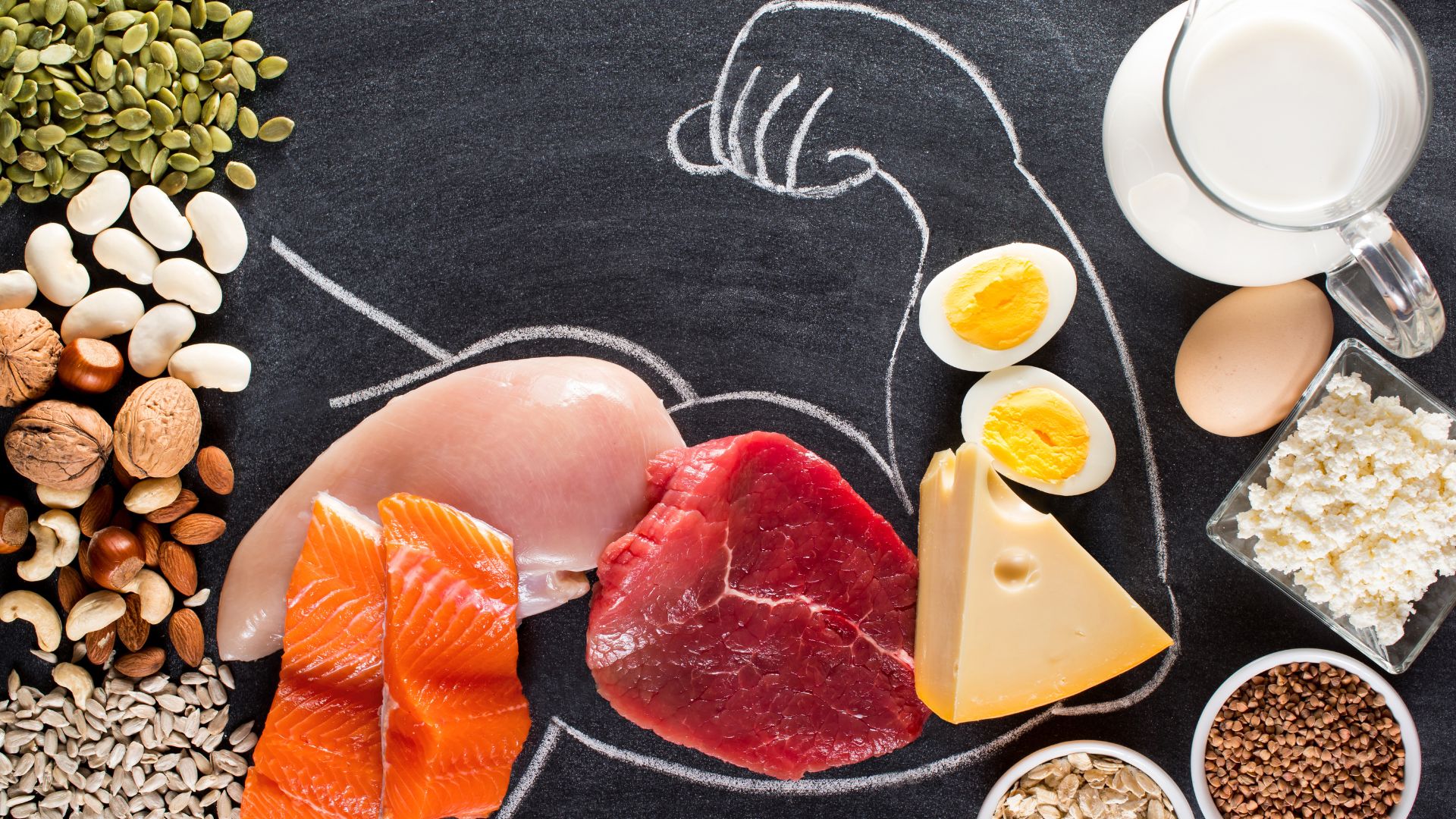How Dieting Affects Your Stamina

Australians spend an estimated $310 million is spent each year on weight loss products and services. Many expert clinicians agree that maintaining weight loss can be extremely challenging (Truby, 2019). This article will help you understand the process of the ‘Diet Cycle’ many fall victim to and how it has a negative impact on your body. You might often mistakenly think that you are failing at your diet, when, in reality, your diet is failing you. There are physical and psychological factors beyond your ‘willpower’ that affect your dietary habits.
The Diet Cycle
1. The desire to be a different shape
Throughout your life, it’s likely that you’ve been convinced (largely by the media) that you would be happier if your body was a different shape. As a result, you start the latest fad diet that the media has fed to you as a method of controlling the shape of your body.
2. Cue restrictive eating
To lose weight and change your shape, you enforce a diet. This might include (but is not limited to): cutting out certain foods or food groups, restricting your eating window (‘fasting’), or counting calories or ‘points’. You might even start exercising more vigorously or frequently than you normally would (or more than you should!).
3. Overpowering diet mentality
At this point, you have probably been hyper-fixated on food for the past few days of your diet. You are constantly thinking about all your favourite foods that you’ve cut out of your diet, and you probably count the minutes until your next meal. You may even catch yourself checking your reflection more often to note any physical changes. At this point, you’re more likely to become overly-cautious and obsessive about what you eat, checking labels or refusing foods with unknown calorie-counts.
4. Weight loss
If you start to see the number on your scale go down, it’ll only motivate you to maintain your diet. This ‘weight loss’ is likely caused by a reduction in water weight, but fuels motivation nonetheless.
5. Serious hunger and cravings
After a few days or so of strict eating, your body will begin to think you are in famine. Restricting eating below your required maintenance level (the amount of food you must eat to maintain weight and function daily), your body produced signals that intensify your hunger pangs to encourage you to consume more. Some research suggests that, for every kilogram of body weight lose, appetite increases by an additional 100 calories per day (Tylka, 2013).
6. ‘Blow-out’
Obsessing over food and workout out to excess can overwhelm your body – as your body is doing extra work to maintain daily functions without the required fuel. Throw in an occasional life stressor and it becomes easy to think ‘oh well!’, and succumb to your cravings, eating more than you normally would. This can easily feel like a splurge or a binge and you may feel like you have lost control.
7. Guild and anxiety
The ‘blow-out’ can often leave you feeling ashamed for breaking your diet. After ‘falling off the bandwagon‘, you might be hesitant to jump back on – especially once you’ve already experienced how difficult the process can be. This can result in the ‘blow-out’ lasting days or even weeks.
8. Weight gain
After quitting your diet, your body will quickly return to its original weight. It is likely that you may even gain some extra fat, as your body is preparing for the next ‘famine’. The weight gain might trigger you to start a new diet, causing the whole process to spiral and repeat.
Our goal is to highlight the impact of diets and dieting products on both your physical and mental health and promote a more sustainable approach to living a healthy life. Check out more of our nutrition blogs to learn how to eat well and lose weight in a healthy, sustainable way.
References
- Thomas, L.P.D. (2021) “Breaking Up With Diet Culture,” in How to just eat it: A step-by-step guide to escaping diets and finding food freedom. Trafalgar Square, pp. 71–74.
- Truby, H. (2019) The hunger games, Monash Lens. Available at: https://lens.monash.edu/@health-sciences/2019/06/06/1375299/the-hunger-games-keeping-the-weight-off#:~:text=Australians%20currently%20spend%20%24309.9%20million,weight%20using%20weight%20loss%20strategies (Accessed: March 16, 2023).
- Tylka TL, Kroon Van Diest AM. The Intuitive Eating Scale-2: Item refinement and psychometric evaluation with college women and men. J Couns Psychol [Internet]. 2013 [cited 16 March 2023]; 60(1): 137-53. Available from: http://doi.apa.org/getdoi.cfm?doi=10.1037/a0030893







